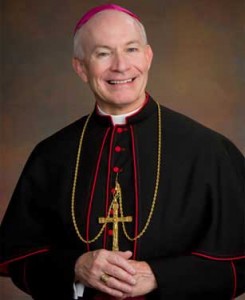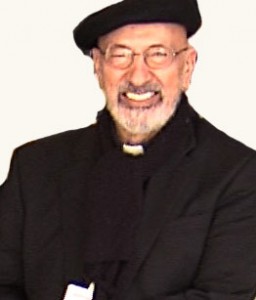Podcast: Play in new window | Download (Duration: 26:00 — 23.8MB) | Embed
Subscribe: Apple Podcasts | Spotify | Amazon Music | Android | Pandora | iHeartRadio | JioSaavn | Podchaser | Gaana | Podcast Index | Email | TuneIn | Deezer | Anghami | RSS | More
Archbishop Lucas offers insights on the US Catholic Catechism for Adults Chapter 26:
The Second Commandment forbids the wrong use or misuse of God’s name. There are a number of ways in which this happens. Blasphemy uses the name of God and of Jesus Christ as well as those of the Blessed Mother and the saints in an offensive manner. The Catechism teaches that blasphemy consists “in uttering against God—inwardly or outwardly—words of hatred, reproach, or defiance” (CCC, no. 2148). This is gravely sinful. Habitual disrespect for God, displayed in cursing and even in the use of vulgar language, can create an attitude that erodes our relationship with the Lord.
At the same time, we recognize diminished culpability when the name of God is used because of an outburst of undisciplined speech due to passion or unexpected incitement to anger. We need to cultivate a persistent reverence for sacred names; if we do not, we can end up giving bad example and also fall into the sin of blasphemy. It should also be noted that in Scripture, the sometimes passionate language of the Prophets, in which they lament the troubles of their times and utter loud complaints to God, is not blasphemy or the taking of God’s name in vain. It is actually prayer addressed to God.
United States Conference of Catholic Bishops (USCCB)
The Most Reverend George J. Lucas leads the Archdiocese of Omaha.
For other episodes in the visit our Archbishop George Lucas page
This programs is based on:
More information can be found here.
We wish to thank the USCCB for the permissions granted for use of relevant material used in this series.
Also we wish to thank Jim Carroll and Bruce McGregor for his vocal talents in this episode.
[ezcc]






